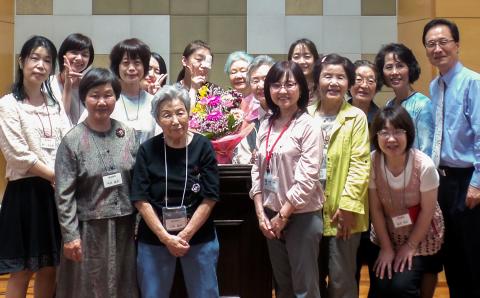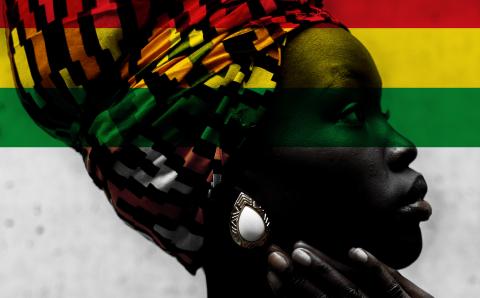Christmas is wrapped up. The holiday decorations are back in their storage bins, safely tucked away in attics, basements, and closets. And we’ve returned to our normal worship patterns, too. The pleading of “Come, Thou Long-Expected Jesus” and the celebration of “Joy to the World” have faded into the background, where they’ll most likely stay until next December.
But as the Christmas season fades away, I find myself wondering: What do we do with all the promises for peace on Earth that got stirred up during the Advent and Christmas seasons? Is the peace we sang about just another fancy ornament we use to dress up our mantels, churches, and prayers for a few weeks each December? Or is peace on Earth a real possibility?
Whether through our daily consumption of global news or experiences that are much more personal, we are painfully aware of the absence of peace in our world. As Article 16 of Our World Belongs to God reminds us, “All spheres of life ... bear the wounds of our rebellion.” Our rebellion against God has done violence to our relationships with God, our neighbors, and the rest of creation.
These violent disruptions in our relationships are toxic to any of our efforts at establishing peace on Earth. At best, we can offer a sampling of peace defined only by the absence of any visible conflict in the present moment among our circle of friends or family. But global peace? Peace with God? Peace throughout creation? That remains beyond us.
Yet the biblical narrative testifies that peace on Earth will come. From Isaiah’s prophecy that the Messiah will be the Prince of Peace to the opening of Colossians that teaches us how God is at work reconciling all things, including powers and principalities, through Jesus Christ’s death and resurrection, Scripture consistently points toward a coming peace. In describing the arrival of God’s peaceable kingdom, Revelation declares that God will remove all the consequences of violence and destruction: “[God] will wipe away every tear from their eyes. There will be no more death, or mourning or crying or pain, for the old order of things has passed away.” (Revelation 21:4-5). A few verses later, the text extends this peace into an abundant flourishing in describing how the kings of the earth will bring their treasures into God’s new kingdom and how the nations will be healed. Peace on earth is not merely possible, but assured.
The question then becomes: How do we live now in anticipation of this coming peace? The sixth article of Our World Belongs to God teaches that we are to wait expectantly for God to bring that day about “with tempered impatience, eager to see injustice ended.” This contemporary testimony later calls us into action: “Followers of the Prince of Peace are called to be peacemakers, promoting harmony and order and restoring what is broken” (54). Such a posture reflects the Bible’s prophetic voices that call us to work toward the peace of all, especially those who have been marginalized and oppressed, as well as the more personal admonition in Romans 12:18 that encourages us to “live at peace with everyone.”
It is not that our efforts will establish a global peace. Rather, our peaceful posture and our daily work for the peace of others serve as witnesses, testifying that God is making all things new. One day soon, Jesus, the Prince of Peace, will usher in a kingdom of peace throughout heaven and earth in which all people and all of creation will flourish together in righteousness, justice, and peace.
About the Author
Chris Schoon serves as the Director of Faith Formation Ministries for the Christian Reformed Church and is the author of Cultivating an Evangelistic Character (Wipf & Stock, 2018).








